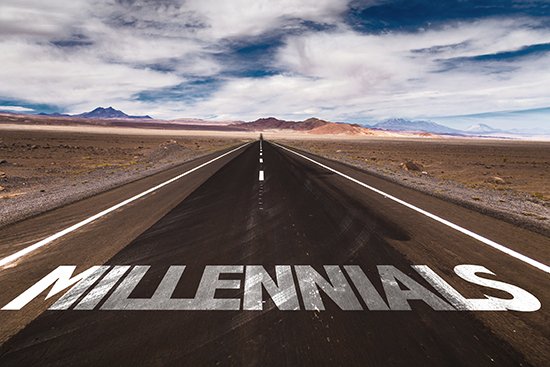In 1992, the Dutch sociologist Henk Becker pigeon-holed four distinctive generations in Dutch society in the late twentieth century: the Pre-War generation (born 1910-1930); the Quiet Generation (1930-1940); the Protest Generation (1940-1955), and the Lost Generation (1955-1970). US sociologists have specified three slightly different generations: the Baby Boomers (born 1946-1964); Generation X (1965-1980), and Generation Y or the Millennials (1980-1994). Becker argues that each generation is defined by its outlook on life and chances of succeeding in society’s economic and demographic circumstances, measured when someone is around 17 years old. If you belong to a generation that comes of age in wealth and prosperity, you are likely to have an optimistic outlook for the rest of your life, whereas if you grow up in economically hard times, you’ll initially be apprehensive and continue to see doom and gloom, even when things get better.
When the baby boomers entered the labour market in the 1960s and 1970s, they experienced a golden age. The economy was booming, incomes were on the rise continuously, the standard of living had grown as never before, and job security was at its highest. When Generation X entered the labour market in the 1980s, there was high unemployment, low job security, and government spending for education was slashed. The Millennials, who came of age at the turn of the millennium (hence the name), experienced the crash of the dot.com bubble (2001) and credit crisis (2008). As a result, their generation had to endure high unemployment, low job security, difficulties in buying a home, and, of course, were bogged down by huge student loan debts after years of government budget cuts in education.
Hands down, baby-boomers had it the best in the 20th century. Numbering more than 3.1 million people in the Netherlands, this generation accounts for approximately 20% of the total population, and they are the most affluent. However, as they are headed towards the end of their life, their children – primarily the Millennials – stand to inherit the lion’s share of their wealth. According to a 2017 study, the average retired couple in the Netherlands owned approximately €113,000. Another study suggests that half of those households had more than a €100,000, and 11% more than half a million euros. In the US, baby boomers are estimated to leave 45 million trillion dollars to the next generation. Economists call it the ‘great transfer wealth’ and foresee huge changes in the economy.
Investment managers are already witnessing the average age of their customers getting younger. In the past, customers used to be in their 60s, now they are pushing 50. In comparison to baby-boomers, Millennials are a different breed of investors. For one, a big trend among Millennial shareholders is having active ownership, where they invest in companies that allow them to have a voice and active dialogue via shareholder meetings. The second trend is impact investing, where they invest in companies and organizations that not only generate a financial return, but also are socially and environmentally beneficial. Thus, sustainability is a common denominator. Thirdly, as Millennials grew up with computers and internet, they are likely to research their investments more thoroughly than their baby-boomer parents did in the past. Millennial investors are more likely to steer away from stocks and bonds, and are entering other markets, which economists predict will ultimately shift the entire economy in the future.
However, according to Forbes, not all of the baby-boomers’ wealth will be inherited by their children and grandchildren. As the baby-boomers grew up in an era of wealth and prosperity, they are also accustomed to taking vacations and a life of leisure. As public spending for health and medical services is continuously being scaled back, there is a good chance their wealth will also be spent on daily expenses, health services and medical bills. Moreover, around 19% of the baby boomers are not planning or not able to leave any inheritance for their children at all. So, if you are a Millennial, don’t give up your job, just yet.
Written by Benjamin B. Roberts
